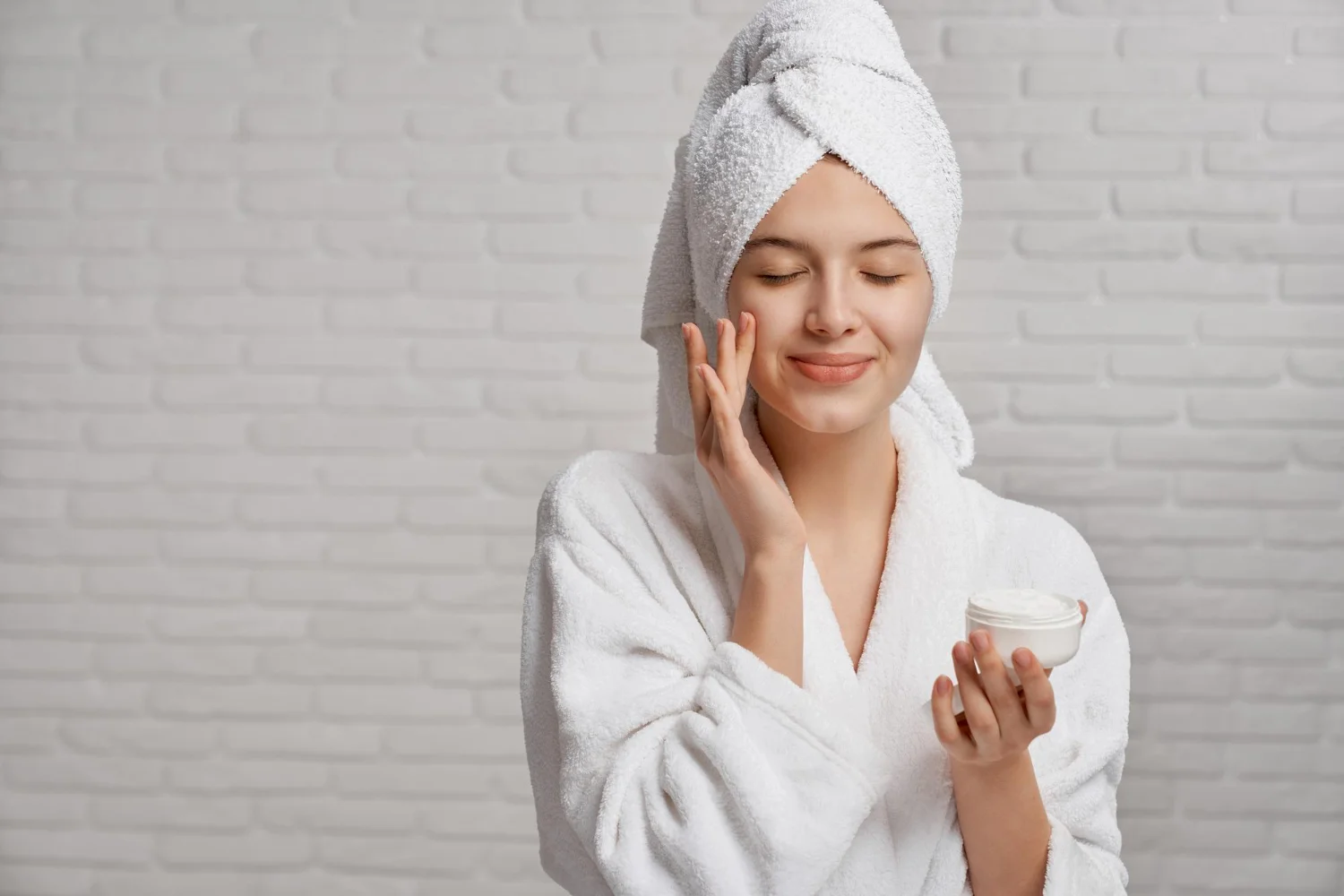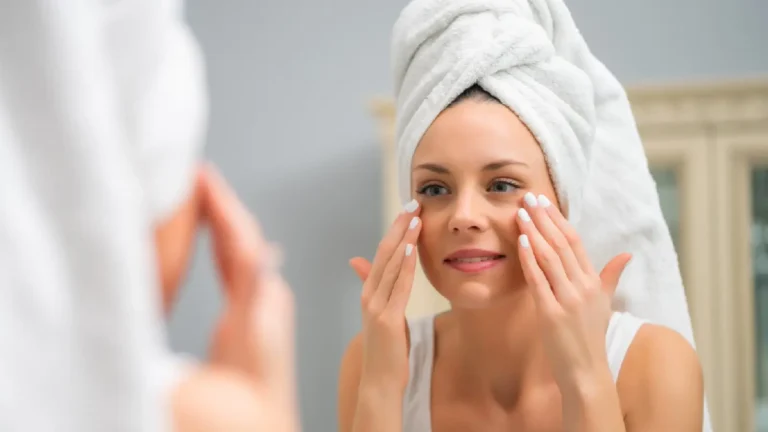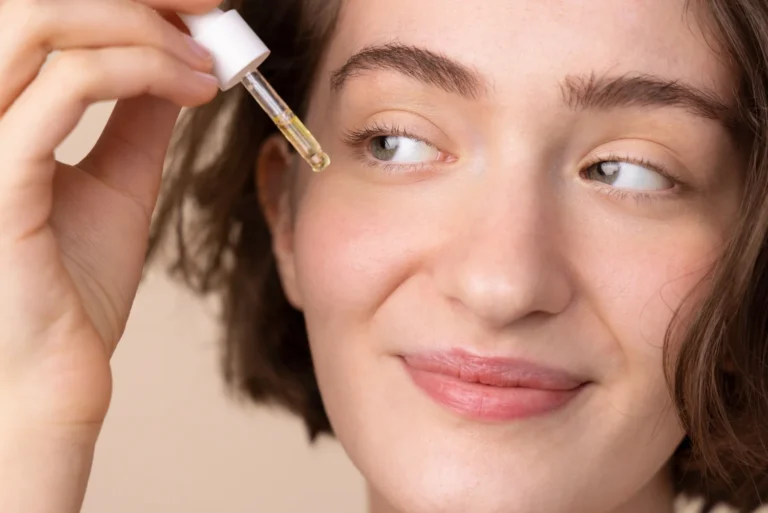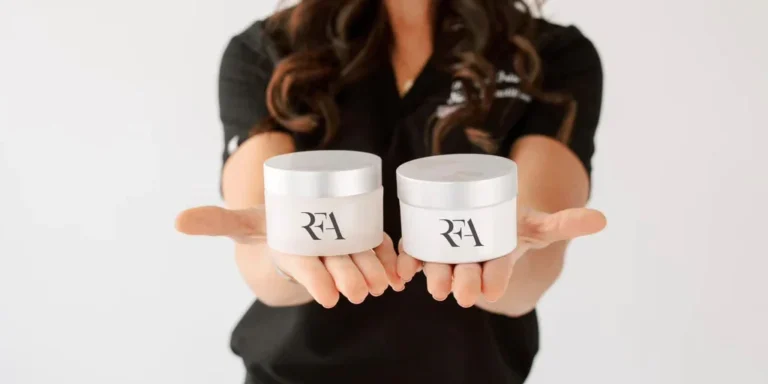Skincare: How to Take Care of Your Skin in 2024
Skincare is the practice of maintaining and improving the health and appearance of your skin. It involves using products, treatments, and lifestyle habits that suit your skin type, concerns, and goals. Skincare is the process of choosing and using the right skincare products and routines for your skin. It also involves learning about your skin and its needs and adjusting your skincare accordingly.
Why is Skincare Important?
Skincare is important for several reasons. First, your skin is the largest organ of your body, and it performs many vital functions, such as protecting you from infections, regulating your body temperature, and sensing touch, pain, and pressure. Second, your skin reflects your overall health and well-being, and it can show signs of stress, aging, and disease. Third, your skin affects your self-esteem and confidence, and it can influence how others perceive you. Therefore, taking care of your skin can benefit your physical, mental, and emotional health.
What are the Basic Steps of Skincare?
The basic steps of skincare are cleansing, toning, moisturizing, and applying sunscreen. These steps should be done twice a day, in the morning and at night, to keep your skin clean, hydrated, and protected.
Cleansing
In the realm of skincare, cleansing takes the lead. This crucial step involves using a suitable product to rid your skin of dirt, oil, makeup, and impurities. Whether you have dry, oily, or sensitive skin, choosing the right cleanser is key. For dry skin, opt for a gentle, hydrating cleanser; oily skin benefits from a foaming, oil-free option, while sensitive skin thrives with a mild, fragrance-free choice. Cleansing is not just a routine—it’s the foundational brushstroke for achieving radiant skin.
Some of the best cleansers in 2024 are:
- Pond’s DeTan Facewash: This cleanser not only washes away impurities but also targets sun-induced tanning and dark spots. It is infused with vitamin C and niacinamide, which have brightening properties. It is gentle on the skin and free from alcohol, silicones, and sulfates.
- Simple Active Skin Barrier Care Smoothing Gel Cleanser: This powerhouse not only evens out skin tone but also strengthens your skin’s barrier. Packed with 5% lactic acid, hyaluronic acid, and glycerine, it exfoliates, hydrates, and smoothens, catering to all skin types. Free from sulfates, artificial fragrances, and parabens, it’s the key to radiant and healthy skin.
Toning
Toning is the second step in skincare. It involves applying a liquid product that balances your skin’s pH, removes any residue left by your cleanser, and prepares your skin for the next steps of your routine. Toning helps restore your skin’s natural acidity, which can be disrupted by cleansing. It also helps tighten your pores, refresh your skin, and enhance the absorption of other products.
To tone your skin, you should use a product that is suitable for your skin type and concerns. For instance, if you have dry skin, you should use a hydrating, alcohol-free toner that replenishes your skin’s moisture. If you have oily skin, you should use a clarifying, astringent toner that controls your oil production and prevents breakouts. If you have sensitive skin, you should use a soothing, calming toner that reduces inflammation and redness.
Some of the best toners in 2024 are:
- Plum Green Tea Alcohol-Free Toner: This toner not only balances your skin’s pH but also fights acne and blemishes. It is infused with green tea, glycolic acid, and witch hazel, which have anti-inflammatory, exfoliating, and pore-minimizing properties. It is alcohol-free, vegan, and cruelty-free.
- Kama Ayurveda Pure Rose Water: This toner not only refreshes your skin but also nourishes and hydrates it. It is made from steam-distilled roses, which have soothing, cooling, and anti-aging properties. It is 100% natural, organic, and preservative-free.
Moisturizing
Moisturizing is the third step of skincare. It involves applying a cream, lotion, gel, or oil that hydrates and softens your skin. Moisturizing helps prevent dryness, flakiness, and irritation. It also helps improve your skin’s elasticity, texture, and appearance.
To moisturize your skin, you should use a product that is suitable for your skin type and concerns. For instance, if you have dry skin, you should use a rich, emollient moisturizer that locks in moisture and repairs your skin’s barrier. If you have oily skin, you should use a light, non-comedogenic moisturizer that hydrates your skin without clogging your pores or making your skin greasy. If you have sensitive skin, you should use a gentle, hypoallergenic moisturizer that does not contain any potential allergens or irritants.
Some of the best moisturizers in 2024 are:
- Cetaphil Moisturizing Cream: This moisturizer not only hydrates your skin but also protects it from environmental damage. It is formulated with glycerine, macadamia nut oil, and vitamin E, which have moisturizing, nourishing, and antioxidant properties. It is fragrance-free, non-greasy, and suitable for all skin types.
- Neutrogena Hydro Boost Water Gel: This moisturizer not only hydrates but also plumps and smooths your skin. Infused with hyaluronic acid and capable of holding 1000 times its weight in water, it’s a powerhouse for all skin types, especially normal to oily. This oil-free, lightweight formula is your key to refreshed and radiant skin.
Applying Sunscreen
Applying sunscreen is the fourth and final step of skincare. It involves applying a product that protects your skin from the harmful effects of the sun’s ultraviolet (UV) rays. Applying sunscreen helps prevent sunburn, premature aging, and skin cancer. It also helps prevent hyperpigmentation, dark spots, and uneven skin tone.
To apply sunscreen, you should use a product that has a sun protection factor (SPF) of at least 30 and offers broad-spectrum protection, which means it blocks both UVA and UVB rays. You should apply sunscreen at least 15 minutes before going outside and reapply it every two hours or after sweating, swimming, or toweling off. You should also use other sun protection measures, such as wearing a hat, sunglasses, and protective clothing.
Some of the best sunscreens in 2024 are:
- Re’equil Ultra Matte Dry Touch Sunscreen Gel: This sunscreen not only protects your skin from the sun but also mattifies and controls your oil production. It has an SPF of 50 and a PA++++ rating, which means it offers the highest level of UVA protection. It is oil-free, water-resistant, and suitable for oily and acne-prone skin.
- Lotus Herbals Safe Sun 3-in-1 Matte Look Daily Sunblock: This sunscreen not only protects your skin from the sun but also moisturizes and brightens it. It has an SPF of 40 and a PA+++ rating, which means it offers a high level of UVA protection. It is enriched with herbal extracts of birch, mallow, and hops, which have soothing, hydrating, and anti-inflammatory properties. It is tinted, matte, and suitable for all skin types.
What are the Advanced Steps of Skincare?
The advanced steps of skincare are exfoliating, masking, and applying serums and treatments. These steps are optional and can be done once or twice a week, depending on your skin type, concerns, and goals. These steps help enhance the effects of your basic routine and address specific issues, such as dullness, acne, dark spots, and wrinkles.
Exfoliating
Exfoliating is the process of removing dead skin cells, dirt, and oil from the surface of your skin. Exfoliating helps improve your skin’s texture, tone, and clarity. It also helps unclog your pores, prevent breakouts, and boost your skin’s renewal process.
There are two types of exfoliation: physical and chemical. Physical exfoliation involves using a scrub, brush, or other tool that physically scrubs your skin. Chemical exfoliation involves using a product that contains acids, enzymes, or other ingredients that dissolve the bonds between your dead skin cells.
To exfoliate your skin, you should use a product that is suitable for your skin type and concerns. For instance, if you have dry skin, you should use a gentle, moisturizing exfoliant that does not dry out your skin. If you have oily skin, you should use a deep-cleansing, oil-controlling exfoliant that removes excess sebum and impurities. If you have sensitive skin, you should use a mild, non-irritating exfoliant that does not cause inflammation or redness.
Masking
Masking is the process of applying a product that covers your entire face or a specific area and leaving it on for a certain amount of time. Masking helps deliver concentrated ingredients to your skin, address specific concerns, and provide a relaxing experience.
There are different types of masks, such as clay, sheet, peel-off, and cream masks. Each type has its own benefits and drawbacks, depending on your skin type and concerns. For instance, if you have dry skin, you should use a hydrating, nourishing mask that replenishes your skin’s moisture. If you have oily skin, you should use a purifying, detoxifying mask that draws out impurities and excess oil. If you have sensitive skin, you should use a soothing, calming mask that reduces inflammation and redness.
Some of the best masks in 2024 are:
- Mamaearth C3 Face Mask: This mask not only cleanses your skin but also brightens and tightens it. It is infused with charcoal, coffee, and clay, which have detoxifying, stimulating, and firming properties. It also contains fruit extracts, which have antioxidant and anti-aging properties. It is suitable for all skin types and free from parabens, sulfates, and artificial colors.
- The Face Shop Real Nature Sheet Mask: This mask not only hydrates your skin but also nourishes and revitalizes it. It is made of natural fiber, which adheres to your skin and delivers the essence of various natural ingredients, such as aloe vera, honey, lemon, and cucumber. It is suitable for all skin types and free from alcohol, mineral oil, and parabens.
Applying Serums and Treatments
Applying serums and treatments is the process of using products that contain high concentrations of active ingredients that target specific skin issues, such as dullness, acne, dark spots, and wrinkles. Applying serums and treatments helps improve your skin’s appearance, function, and health.
There are different types of serums and treatments, such as vitamin C, retinol, hyaluronic acid, and niacinamide. Each type has its own benefits and drawbacks, depending on your skin type and concerns. For instance, if you have dull skin, you should use a vitamin C serum that brightens and evens out your skin tone. If you have acne-prone skin, you should use a retinol treatment that unclogs your pores and reduces inflammation. If you have dry skin, you should use a hyaluronic acid serum that hydrates and plumps your skin. If you have uneven skin, you should use a niacinamide serum that regulates oil production and fades hyperpigmentation.
Some of the best serums and treatments in 2024 are:
- Dot & Key Glow Revealing Vitamin C Serum Concentrate: This serum not only brightens your skin but also protects it from environmental damage. It is formulated with 10% vitamin C, ferulic acid, and grapeseed oil, which have antioxidant, anti-inflammatory, and moisturizing properties. It also contains kakadu plum, which is the richest source of vitamin C in nature. It is suitable for all skin types and free from parabens, sulfates, and artificial colors.
- Minimalist 2% Retinoid Anti-Acne & Anti-Aging Serum: This serum not only clears your skin but also reverses the signs of aging. It is formulated with 2% granactive retinoid, which is a gentle yet effective form of retinol that stimulates collagen production, reduces fine lines and wrinkles, and prevents breakouts. It also contains aloe vera and hyaluronic acid, which soothe and hydrate your skin. It is suitable for all skin types and free from alcohol, fragrance, and parabens.
Don’ts of Skincare: Pitfalls to Avoid
Knowing what to avoid is as crucial as knowing what to incorporate into your skincare routine. Here are the don’ts:
1. Overwashing: Less Is More
Resist the urge to overwash your face, as this can strip away natural oils, leading to dryness and irritation. Washing once or twice a day is sufficient, with adjustments based on your skin type and makeup use.
2. DIY Hacks: Proceed with Caution
While DIY hacks may seem tempting, some common ingredients can harm your skin’s barrier. Avoid the following:
- Lemon juice: Too acidic, causing dark spots and potential irritation.
- Baking soda: Harsh pH level, leading to dryness and skin stress.
- Garlic: Raw garlic may cause allergies, eczema, and inflammation.
- Toothpaste: Drying and irritating, not formulated for the skin.
- Sugar: Harsh exfoliant for facial skin.
- Vitamin E: Topical application may irritate the skin and is not proven for scar improvement.
Always opt for products formulated for your face and consult with a professional before trying DIY applications.
3. Picking at Skin: A Strict No-No
Avoid picking at acne, blackheads, or scabs, as this can result in open wounds, infections, and potential scarring. Resist the temptation to squeeze or pop pimples, as this can exacerbate skin problems.
Specific Care: Targeting Skin Concerns
Addressing specific skin concerns requires targeted care. Here’s how to tackle common issues:
1. Acne: Tailored Solutions for Clear Skin
For mild acne, non-prescription products containing salicylic acid, benzoyl peroxide, alpha-hydroxy acids, or adapalene can be effective. Always follow up with sunscreen to prevent increased sensitivity. Consider acne patches for immediate relief and prevention of infections.
2. Sebaceous Filaments: Clearing Pores Safely
Differentiated from blackheads, sebaceous filaments can make pores appear larger. Avoid improper removal methods and consider using topical preparations containing retinol or retinoids. Extraction tools, when used carefully, can also help.
3. Blemishes, Scars, and Hyperpigmentation: Patience and Treatment
Healing blemishes and scars takes time. Incorporate makeup and sunscreen to prevent further damage. Ingredients like silicone, honey, vitamin C, niacinamide, and retinoic acid can aid in scar reduction. Choose products with these ingredients and apply them consistently.
How to Choose the Right Skincare Products for Your Skin?
Choosing the right skincare products for your skin can be a daunting task, given the plethora of options available on the market. However, there are some factors that can help you narrow down your choices and find the best fit for your skin. Here are some Most Beauty Tips to help you choose the right skincare products for your skin:
- Know your skin type: The first and foremost step is to identify your skin type, which can be dry, oily, normal, combination, or sensitive. Your skin type determines how your skin reacts to different products and ingredients and what kind of products you need to use. For instance, if you have dry skin, you need to use products that are hydrating, moisturizing, and emollient. If you have oily skin, you need to use products that are oil-free, mattifying, and astringent. If you have normal skin, you can use products that are balanced, gentle, and suitable for all skin types. If you have combination skin, you need to use products that are tailored to your different zones, such as using a light moisturizer for your oily T-zone and a rich moisturizer for your dry cheeks. If you have sensitive skin, you need to use products that are mild, hypoallergenic, and free from potential irritants, such as alcohol, fragrance, and artificial colors.
- Know your skin concerns: The next step is to identify your skin concerns, which can be dullness, acne, dark spots, wrinkles, or any other issue that affects your skin’s appearance, function, or health. Your skin concerns determine what kind of products and ingredients you need to use to address them. For instance, if you have dull skin, you need to use products that are brightening, exfoliating, and antioxidant. If you have acne-prone skin, you need to use products that are anti-inflammatory, antibacterial, and pore-minimizing. If you have dark spots, you need to use products that are lightening, fading, and SPF. If you have wrinkles, you need to use products that are anti-aging, firming, and collagen-boosting.
- Know your skin goals: The final step is to identify your skin goals, which can be achieving a radiant, healthy, or youthful glow. Your skin goals determine what kind of products and routines you need to use to achieve them. For instance, if you want to achieve a radiant glow, you need to use products that are hydrating, nourishing, and illuminating. If you want to achieve a healthy glow, you need to use products that are protective, repairing, and strengthening. If you want to achieve a youthful glow, you need to use products that are rejuvenating, smoothing, and lifting.
When to See a Professional: Dermatologist Guidance
If over-the-counter products don’t resolve your skin concerns, consult a dermatologist. Severe acne, scarring, or persistent issues may require prescription treatments. Dermatologists can perform extractions for deeper cysts and provide personalized advice based on your skin type.
Conclusion
Skincare is the process of taking care of your skin in the best possible way. It involves using the right products and routines for your skin type, concerns, and goals. Skincare is important for your physical, mental, and emotional health, as it helps you maintain and improve your skin’s health and appearance. By following the basic and advanced steps of skincare, you can achieve the skin of your dreams in 2024.










